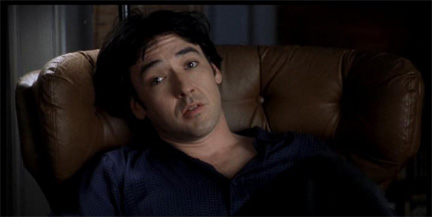|
|
Viking Night: High FidelityBy Bruce HallFebruary 7, 2012
The film opens at the home of Rob Gordon (Cusack), who is in the midst of begging his incredibly exotic looking girlfriend Laura (Iben Hjejle - say that ten times fast) not to walk out on him. He fails, because she's got that look on her face that women do when mentally, they've checked out about six months ago. They've been patient, they've dropped hints, laid down bread crumbs, passed up better men and even ignored the desperate advice of their very best friends for you. And now, she's had enough. After she's gone, it's kind of easy to see why. Rob is a man who sits around stewing in self doubt, brooding over and muttering about the many failures in his past, particularly the ones that involved other women. This, of course, makes him dour and sullen to the woman he's currently with and naturally drives her away. It seems Rob can come up with more details about his ex girlfriends than his current one - and we all know how girls like to share a relationship with ghosts. So, Rob turns to the camera and begins to recount for us the five worst breakups of his life. This is a cinematic device; usually, when a character addresses the camera this means they're not talking to us so much as they're talking to themselves, or mulling an issue over incessantly in their own mind. Had the film not resorted to this convention, it would have been necessary to literally show Rob walking around in circles muttering to himself and pulling his hair out in clumps, which - I'm guessing - would make him a lot harder to like.
|

|
|
|

|
Friday, November 1, 2024
© 2024 Box Office Prophets, a division of One Of Us, Inc.


